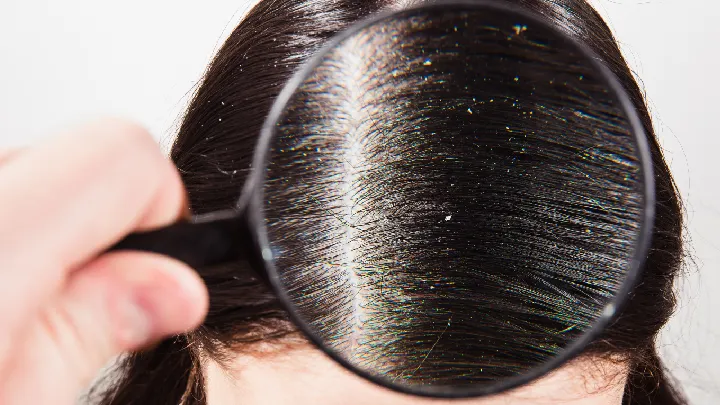If you’ve ever found white flakes on your shoulders or experienced an itchy scalp, you’re not alone. Dandruff is one of the most common scalp concerns that affects people of all ages. The good news? It’s manageable. Let’s explore what dandruff is, what causes it, and how you can treat and prevent it effectively.
What Is Dandruff?
Dandruff is the shedding of dead skin cells from the scalp. While it’s normal for skin cells to die and flake off, people with dandruff experience an excessive amount of flaking. This can sometimes be accompanied by itchiness, redness, or even a greasy scalp. Despite being a common concern, dandruff can make many feel self-conscious, especially when flakes are visible on dark clothing.
What Causes Dandruff?
Dandruff isn’t caused by poor hygiene, as many myths suggest. In fact, it’s a result of various factors. Here are some common reasons for dandruff:
- Malassezia Overgrowth - This yeast-like fungus lives naturally on our scalp. However, when it grows excessively, it can cause irritation, leading to dandruff.
- Oily or Dry Scalp - Both excessively oily and overly dry scalps can contribute to dandruff. An oily scalp creates an environment for Malassezia to thrive, while a dry scalp can flake off more easily.
- Sensitivity to Hair Products - Certain shampoos, conditioners, or styling products can irritate the scalp, leading to flaking and itching.
- Weather Conditions - Cold, dry winters often make dandruff worse due to lack of moisture in the air.
- Stress - It might surprise you, but stress can worsen dandruff. A stressed scalp is more prone to irritation and imbalance.
- Underlying Skin Conditions - Conditions like seborrheic dermatitis, psoriasis, or eczema can mimic or exacerbate dandruff symptoms.
Types of Dandruff
Not all dandruff is the same. Here are the common types of dandruff that people usually suffer from:
- Dry Dandruff - Characterized by small, white, and powdery flakes. This often occurs during winter or when the scalp lacks moisture.
- Oily Dandruff - These flakes are larger, yellowish, and tend to stick to the scalp due to excessive sebum production. It can also lead to a greasy appearance.
- Fungal Dandruff - Caused by Malassezia overgrowth, this type often leads to irritation and noticeable flaking.
Understanding the type of dandruff you’re dealing with can help determine the most effective dandruff treatment.
Can Dandruff Cause Hair Fall?
Dandruff itself doesn’t directly cause hair fall, but the constant itching associated with it can. When you scratch your scalp frequently, it can weaken the hair roots, leading to breakage and hair shedding. This mechanical damage to the scalp can make your hair appear thinner over time.
Additionally, severe forms of dandruff, such as seborrheic dermatitis, can inflame the scalp and disrupt the hair growth cycle. This inflammation may indirectly contribute to hair fall. Therefore, addressing dandruff promptly is essential to maintain both scalp and hair health.
Dandruff Treatment: Effective Solutions
Treating dandruff doesn’t have to be complicated. With the right approach, you can effectively manage the flakes and restore your scalp’s health. Here are some tried-and-tested solutions:
- Medicated Shampoos - Look for shampoos containing active ingredients like zinc pyrithione, ketoconazole, or selenium sulfide. These help control fungal growth and reduce flaking.
- Exfoliating Scalp Treatments - Just like your skin, your scalp benefits from gentle exfoliation. Use scrubs designed for the scalp to remove buildup and dead skin.
- Moisturizing the Scalp - If your dandruff stems from dryness, use hydrating oils like coconut or argan oil to nourish your scalp.
- Balanced Diet- Include foods rich in omega-3 fatty acids, zinc, and biotin. A healthy diet can improve scalp health from the inside out.
- Professional Help- If over-the-counter solutions don’t work, consult a dermatologist. Sometimes, persistent dandruff requires prescription treatments.
How to Prevent Dandruff
Prevention is always better than cure, they say. Here are simple steps to keep dandruff at bay:
- Wash Your Hair Regularly - Cleaning your scalp prevents oil and dirt buildup. Use a gentle shampoo suitable for your scalp type.
- Avoid Overusing Hair Products - Styling gels, sprays, and other products can leave residues that irritate the scalp.
- Maintain Scalp Hygiene - Ensure you rinse out all shampoo and conditioner thoroughly to avoid product buildup.
- Manage Stress - Practice relaxation techniques like yoga, meditation, or even a walk to keep stress levels in check.
- Protect Your Scalp - During cold weather, wear a hat or scarf to shield your scalp from the drying effects of wind and low humidity.
Interesting Facts About Dandruff
Dandruff is Not Contagious. You can’t catch dandruff from someone else, so don’t worry about sharing combs or pillows.
Age Matters. Dandruff is most common in young adults but can persist into middle age. Hormonal changes often play a role.
DIY Remedies Can Help Manage Dandruff. Ingredients like tea tree oil, apple cider vinegar, and aloe vera have natural antifungal and soothing properties that may reduce dandruff.
How To Permanently Get Rid Of Dandruff?
To permanently get rid of dandruff, focus on a healthy scalp routine. Use an anti-dandruff shampoo with natural ingredients like tea tree oil or neem, and wash your hair regularly to remove excess oil and flakes. Keep your scalp moisturized to prevent dryness, and avoid harsh chemicals or heat styling. A balanced diet rich in zinc, omega-3s, and probiotics also helps maintain scalp health naturally.
Final Thoughts
Dandruff is annoying, sure, but it’s not unbeatable. With the right understanding, you can find a dandruff solution that works for you. From tweaking your hair care routine to seeking expert advice, managing dandruff doesn’t have to be a daunting task. Remember, a healthy scalp is the foundation of beautiful hair. If you’re still unsure about what causes dandruff in your case or need tailored dandruff treatment, don’t hesitate to consult a best dermatologist.
Because everyone deserves to flaunt their hair, flake-free!


